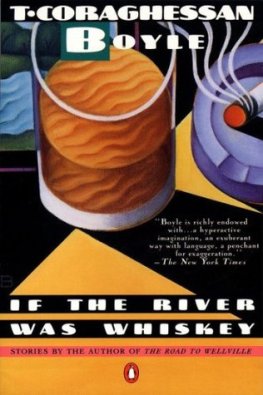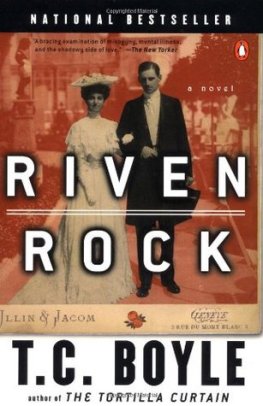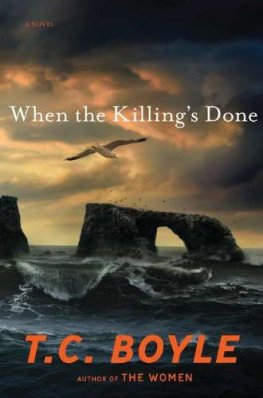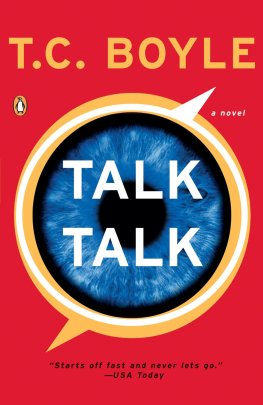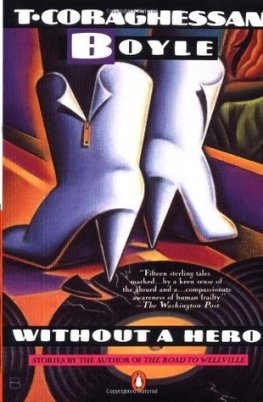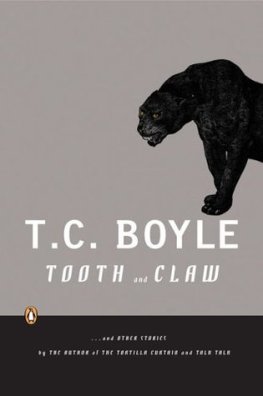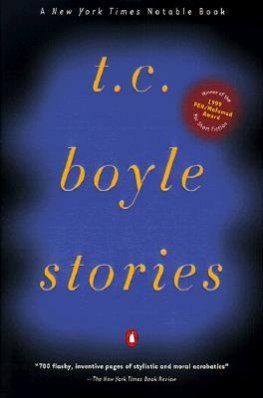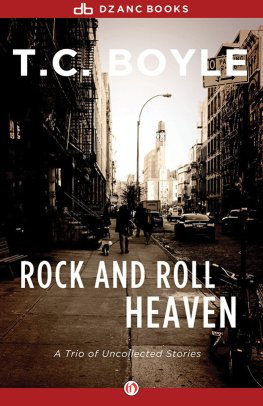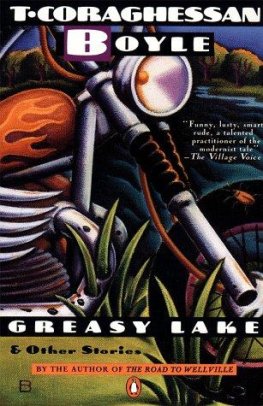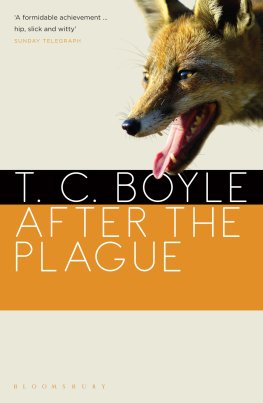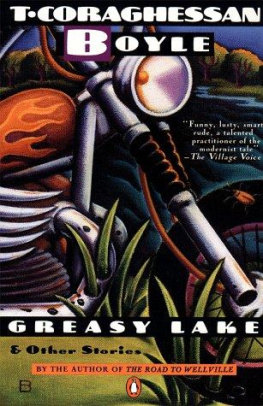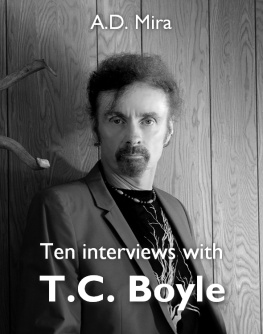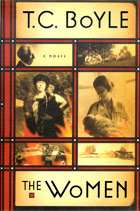For Kerrie, Milo, and Spencer
You know that the best you can
expect is to avoid the worst.
Italo Calvino, If on a Winters Night a Traveler
LIMP RADICCHIO.
Sorry fugu.
A blasphemy of baby lambs lettuce, frisee, endive.
A coulibiac made in hell.
For six months he knew her only by her by-line Willa Frank and by the sting of her adjectives, the derisive thrust of her metaphors, the cold precision of her substantives. Regardless of the dish, despite the sincerity and ingenuity of the chef and the freshness or rarity of the ingredients, she seemed always to find it wanting. The duck had been reduced to the state of the residue one might expect to find in the nether depths of a funerary urn; For all its rather testy piquancy, the orange sauce might just as well have been citron preserved in pickling brine; Paste and pasta. Are they synonymous? Hardly. But one wouldnt have known the difference at Udolphos. The fresh angel hair had all the taste and consistency of mucilage.
Albert quailed before those caustic pronouncements, he shuddered and blanched and felt his stomach drop like a croquette into a vat of hot grease. On the morning she skewered Udolphos, he was sitting over a cup of reheated espresso and nibbling at a wedge of hazelnut dacquoise that had survived the previous nights crush. As was his habit on Fridays, hed retrieved the paper from the mat, got himself a bite, and then, with the reckless abandon of a diver plunging into an icy lake, turned to the Dining Out column. On alternate weeks, Willa Frank yielded to the papers other regular reviewer, a big-hearted, appreciative woman by the name of Leonora Merganser, who approached every restaurant like a mother of eight feted by her children on Mothers Day, and whose praise gushed forth in a breathless salivating stream that washed the reader out of his chair and up against the telephone stand, where he would dial frantically for a reservation. But this was Willa Franks week. And Willa Frank never liked anything.
With trembling fingers it was only a matter of time before she slipped like a spy, like a murderess, into DAngelos and filleted him like all the others he smoothed out the paper and focused on the bold black letters of the headline:
UDOLPHOS: TROGLODYTIC CUISINE
IN A CAVELIKE ATMOSPHERE
He read on, heart in mouth. Shed visited the restaurant on three occasions, once in the company of an abstract artist from Detroit, and twice with her regular companion, a young man so discerning she referred to him only as The Palate. On all three occasions, shed been sniff disappointed. The turn-of-the-century gas lamps Udolphos grandfather had brought over from Naples hadnt appealed to her (so dark we joked that it was like dining among Neanderthals in the sub-basement of their cave), nor had the open fire in the massive stone fireplace that dominated the room (smoky, and stinking of incinerated chestnuts). And then there was the food. When Albert got to the line about the pasta, he couldnt go on. He folded the paper as carefully as he might have folded the winding sheet over Udolphos broken body and set it aside.
It was then that Marie stepped through the swinging doors to the kitchen, the wet cloth napkin shed been using as a dishrag clutched in her hand. Albert? she gasped, darting an uneasy glance from his stricken face to the newspaper. Is anything wrong? Did she? Today?
She assumed the worst, and now he corrected her in a drawl so lugubrious it might have been his expiring breath: Udolphos.
Udolphos? Relief flooded her voice, but almost immediately it gave way to disbelief and outrage. Udolphos? she repeated.
He shook his head sadly. For thirty years Udolphos had reigned supreme among West Side restaurants, a place impervious to fads and trends, never chic but steady classy in a way no nouvelle mangerie with its pastel walls and Breuer chairs could ever hope to be. Cagney had eaten here, Durante, Roy Rogers, Anna Maria Alberghetti. It was a shrine, an institution.
Albert himself, a pudgy sorrowful boy of twelve, ridiculed for his flab and the great insatiable fist of his appetite, had experienced the grand epiphany of his life in one of Udolphos dark, smoky, and for him, at least forever exotic banquettes. Sampling the vermicelli with oil, garlic, olives, and forest mushrooms, the osso buco with the little twists of bow-tie pasta that drank up its buttery juices, he knew just as certainly as Alexander must have known he was born to conquer, that he, Albert DAngelo, was born to eat. And that far from being something to be ashamed of, it was glorious, avocation and vocation both, the highest pinnacle to which he could aspire. Other boys had their Snider, their Mays, their Reese and Mantle, but for Albert the magical names were Pellaprat, Escoffier, Udolpho Melanzane.
Yes. And now Udolpho was nothing. Willa Frank had seen to that.
Marie was bent over the table now, reading, her piping girlish voice hot with indignation.
Where does she come off, anyway? Albert shrugged. Since hed opened DAngelos eighteen months ago the press had all but ignored him. Yes, hed had a little paragraph in Barbed Wire, the alternative press weekly handed out on street corners by greasy characters with straight pins through their noses, but you could hardly count that. There was only one paper that really mattered Willa Franks paper and while word of mouth was all right, without a review in the paper, you were dead. Problem was, if Willa Frank wrote you up, you were dead anyway.
Maybe youll get the other one, Marie said suddenly. Whats her name the good one.
Alberts lips barely moved. Leonora Merganser.
Well, you could.
I want Willa Frank, he growled.
Maries brow lifted. She closed the paper and came to him, rocked back from his belly, and pecked a kiss to his beard. You cant be serious?
Albert glanced bitterly around the restaurant, the simple pine tables, whitewashed walls, potted palms soft in the filtered morning light. Leonora Merganser would faint over the Hamburger Hamlet on the corner, Long John Silvers, anything. Wheres the challenge in that?
Challenge? But we dont want a challenge, honey we want business. Dont we? I mean if were going to get married and all
Albert sat heavily, took a miserable sip of his stone-cold espresso. Im a great chef, arent I? There was something in his tone that told her it wasnt exactly a rhetorical question.
Honey, baby, she was in his lap now, fluffing his hair, peering into his ear, of course you are. The best. The very best. But
Willa Frank, he rumbled. Willa Frank. I want her.
There are nights when it all comes together, when the monkfish is so fresh it flakes on the grill, when the pesto tastes like the wind through the pines and the party of eight gets their seven appetizers and six entres in palettes of rising steam and delicate colors so perfect they might have been a single diner sitting down to a single dish. This night, however, was not such a night. This was a night when everything went wrong.
First of all, there was the aggravating fact that Eduardo the Chilean waiter whod learned, la Chico Marx, to sprinkle superfluous ahs through his speech and thus pass for Italian was late. This put Marie off her pace vis- -vis the desserts, for which she was solely responsible, since she had to seat and serve the first half-dozen customers. Next, in rapid succession, Albert found that he was out of mesquite for the grill, sun-dried tomatoes for the fusilli with funghi, capers, black olives, and, yes, sun-dried tomatoes, and that the fresh cream for the frittata piemontese had mysteriously gone sour. And then, just when hed managed to recover his equilibrium and was working in that translated state where mind and body are one, Roque went berserk.

